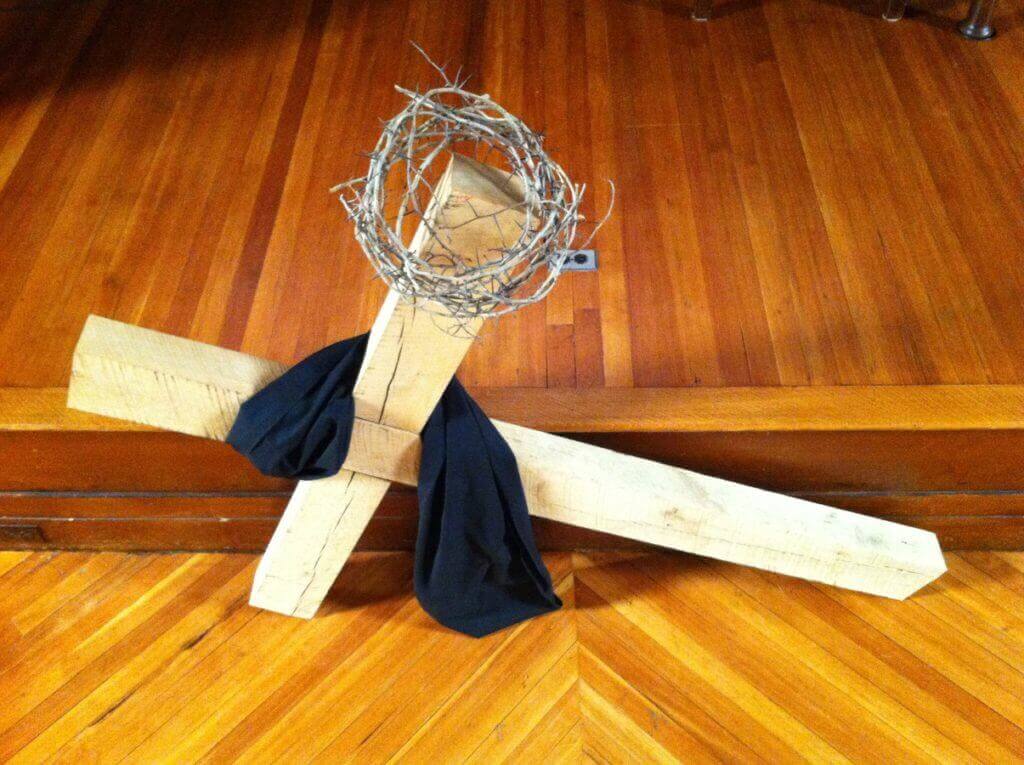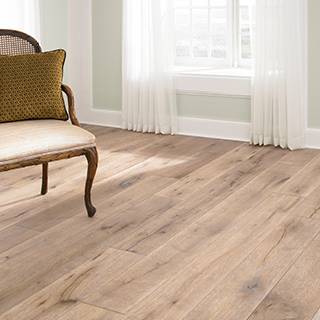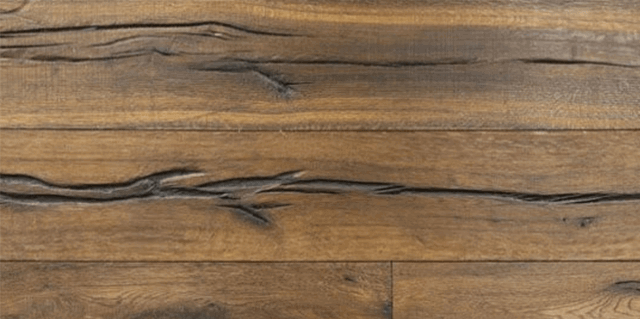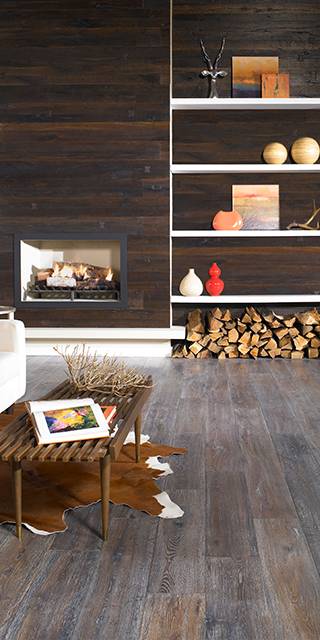Is There a Heaven for Hardwood Floors? Part 2
February 28, 2014
Once you’ve read “Is There a Heaven for Hardwood Floors?: Part 1,” it is time for Part 2: Now that I’ve taken out my floor, what do I do with all this wood?
So, you or someone you’ve paid have now removed that old floor from your house to make room for the shining (or matte or hand-scraped) new floor of your dreams. But what to do with all the wood that’s just come out? If it seems like an unforgivable waste to just chuck it out with the trash, that’s because it is. One punishable by focused disdain from tree-huggers, wood-lovers, creative types, and just plain practical people the world over.
Hardwood Flooring Salvage Options
Removal contractors:
If you’ve hired someone to take out your floors, it’s likely you’ve already talked to them about salvaging the wood for re-use as flooring. You may have even been able to arrange for the cost of removal to be lowered in exchange for the reusable material. Salvaging is definitely the most lucrative of the options for hardwood disposal, but it also requires the most care in removal.
If you took out the floor yourself, first off, kudos to you for a difficult job completed. If you think you have done a careful enough removal job to resell the wood as flooring, and if it is in good enough condition, it shouldn’t be too hard to find a home for it. Remember, it doesn’t need to be perfect—it will be refinished before it becomes a floor again—but it does need to have most of its tongues and grooves and have enough life left in it for at least one more (two or three is better) sanding and refinishing.
Do-it-yourself salvagers:
Exchanges like Craigslist and local remodeling or home improvement forums can be good places to find do-it-yourselfers in search of salvageable hardwood. They will want to take a look at the wood beforehand, of course, and they may not want all of it, depending on the condition.
Remember that, even once they acquire your wood, they are going to have to refinish and install it, and they may find that some of what you both thought would be usable won’t be. Consequently, you shouldn’t expect to resell the wood at more than a fraction of what you would pay for salvaged wood at a store, but you will have the satisfaction of knowing that your old floor is going to a caring home.
Professional salvagers:
On this note, if your wood is in good condition (i.e. if you took it out only because you wanted something different) you may want to call around to local flooring contractors or stores that specialize in salvaged wood flooring. Like do-it-yourself salvagers, they may not want all of it, but they are more likely to be able to use questionable pieces and they will likely come and collect the wood from your home, saving you on transportation hassle.
Donate: If your floor is healthy enough for a second life as a floor, consider donating it to an organization like Habitat for Humanity. They often have professional volunteers who can help them turn your old floor into a beautiful new one for a family that will be grateful to have it.
Hardwood Flooring Repurpose Options
Some hardwood floors have undergone resanding and refinishing too many times to ever be used as flooring again. This may well be why you chose to take it out. Likewise, if you took the flooring out yourself, you may have been able to save good-sized lengths of wood, but not the more delicate tongues and grooves that make it usable as flooring. All is not lost.
Take a look at your property. Maybe you’ve been thinking of making a dog run or an area for a garden. Wood that may be too worn for flooring is often just right fencing. Which additional woodworking projects have you been considering? A doghouse, maybe, or a playhouse? A raised workbench? Even if you don’t have any projects like this, check with your neighbors and friends, or even your local school’s woodshop. Someone is bound to have a project that needs some good-sized lengths of wood, and they will probably be grateful to have floor quality wood, even if it is a little bruised and beaten.
*If you are going to keep your wood around to use in future projects, be sure to store it somewhere off the ground to keep it free of termites and other varmints.
Be Creative
These days, “upcycling” is all the rage. If you don’t know what that is, type it into your search bar and be prepared for a deluge of creative, chic, and easy-to-pull-off ways to use everything from bottle caps to crayons – everything including old wood floors. Check out sites like Pinterest for ideas on how to “upcycle” or “repurpose” old hardwood floors. You might be surprised at the cool stuff you can do (we saw, among other things, an accent wall, a bar top, a treehouse, and innumerable planters, toy boxes, and shelves).
Final Resorts
As professional organizer, Sally Morgan says: Items that don’t have “significant value“, or aren’t expected to get a realistic return, shouldn’t try to be sold. Hardwoods flooring is no exception.
If your wood is absolutely destroyed (moldy, rotted, splintered into pieces), you may have no choice but to discard it. Even in this, though, you have some choices. There is rarely any reason that you should have to throw old wood in a dumpster (but if you do, there are plenty of dumpster rental options in Denver).
Don’t use it as firewood: Unfortunately, since most hardwood floors have been treated with some sort of solution that may become toxic when burnt, firewood is not the best option for this otherwise prime fireplace candidate. Likewise, if it is full of molds or fungus, these are not things you want to release into air that anyone will be breathing. For the same reasons, this wood is not usually going to be very good for chipping into mulch. We recommend these options instead:
- If it’s not against neighborhood codes, try putting out front of your house (or on Craigslist or Freecycle) for a couple of days with a sign that says “free”. You might be surprised at how quickly it disappears.
- Most places have somewhere within a reasonable drive where you can recycle old wood. Some cities may even include this as part of the garbage collection service, though you may have to call and request a special pick-up. However, there may be regulations about wood treated in certain ways.
- If there is a wood pellet manufacturer in your area, you may be able to donate the old wood to be treated and made safe for use in wood pellet stoves.
- Ask around. See what local contractors and flooring suppliers are doing with old, unusable hardwood. You may find a taker among them, but at the very least, you should be able to get some good advice about the best way to reuse, recycle, or otherwise dispose of the old wood in, yeah, your neck of the woods.






